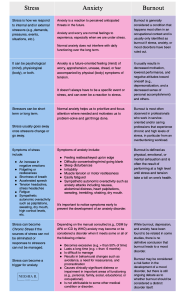How to Manage Group Project Anxiety: Practical Tips for Teamwork Challenges
Group projects can be a mixed bag – sometimes they lead to productive teamwork, but other times, they can feel overwhelming. For individuals with anxiety, group work often amplifies stress, especially when everyone’s working styles or timelines don’t align.
I recently worked with a student who liked to start projects early in order to manage her stress and anxiety. She became anxious when she learned that one of her group members hadn’t started their part of the work. The uncertainty made her worried about how the project would progress.
Using techniques from Acceptance and Commitment Coaching (ACC), I developed strategies to help navigate situations like this. If you’ve ever faced similar challenges, these tips can help you, too.
What Is Group Project Anxiety?
Group project anxiety is the stress and worry that arise during collaborative work, often triggered by factors like lack of communication, mismatched work styles, or missed deadlines. It’s a common challenge, but with the right tools, you can navigate it effectively.
6 Tips for Managing Anxiety in Group Work
1. Acceptance: It’s Okay to Feel Anxious
When anxiety shows up, the first step is to acknowledge it without judgment. Anxiety is a natural response to uncertainty, and accepting those feelings can help reduce their intensity.
For the student, this meant saying to herself:
“I feel anxious because I care about this project. This feeling is here, but I don’t have to let it decide how I act.”
2. Defusion: Notice, Name, and Normalize
Anxiety often brings unhelpful thoughts like, “This project will fail” or “I can’t rely on my team.” Instead of getting stuck in these thoughts, try defusion—a process that helps you separate from unhelpful thinking.
Use the “Notice, Name, and Normalize” technique:
- Notice: “I’m feeling anxious.”
- Name: “This is worry about the project.”
- Normalize: “It’s normal to feel this way when there’s uncertainty.”
This simple process helps create distance between your thoughts and reality, allowing you to focus on what matters.
3. Mindfulness: Ground Yourself in the Present
When anxiety pulls you into worst-case scenarios, mindfulness can help you stay present. A quick mindfulness exercise involves tuning into your senses:
- What do you see?
- What do you hear?
- What do you feel?
This grounding practice helps calm racing thoughts and brings your attention back to what you can control.
4. Clarify Your Values: Focus on What Matters
In group projects, frustration and blame can easily take over. Clarifying your values helps shift your focus to what’s truly important.
Ask yourself:
- “What kind of team member do I want to be?”
- “What qualities do I want to bring to this group project?”
For this student, this meant choosing to be collaborative and solutions-focused rather than letting anxiety lead to avoidance or confrontation.
5. Take Committed Action: Focus on Solutions
Once you’ve clarified your values, the next step is to take meaningful action.
Here’s what the student did:
- Communicated with Kindness: She reached out to the group member with a message like:
“Hey, I noticed we haven’t started on [X]. Is there anything I can do to help us move forward?”
This non-confrontational approach encouraged collaboration.
- Suggested a Group Check-In: She proposed a quick meeting to align on expectations and timelines.
- Focused on Her Contribution: While waiting for others, she concentrated on completing her part of the project to the best of her ability.
6. Practice Self-Compassion: Be Kind to Yourself
Anxiety often leads to self-criticism, but self-compassion is a powerful tool for resilience. Remind yourself:
“It’s okay to feel anxious. I’m doing my best in a challenging situation.”
Self-compassion helps you navigate challenges with patience and perspective.
How to Manage Anxiety in Group Work: A Recap
Here’s a quick recap of the tips:
- Accept your feelings.
- Notice, name, and normalize anxious thoughts.
- Ground yourself in the present with mindfulness.
- Clarify your values to guide your actions.
- Take meaningful steps to address challenges.
- Be kind to yourself through self-compassion.
Next Steps
If you’d like to learn more about managing anxiety in group work or explore personalized coaching options, feel free to reach out. I offer coaching to help teens, parents, and individuals manage stress, build resilience, and navigate challenges in school, work, and life.
Contact me here for coaching support or additional resources.










